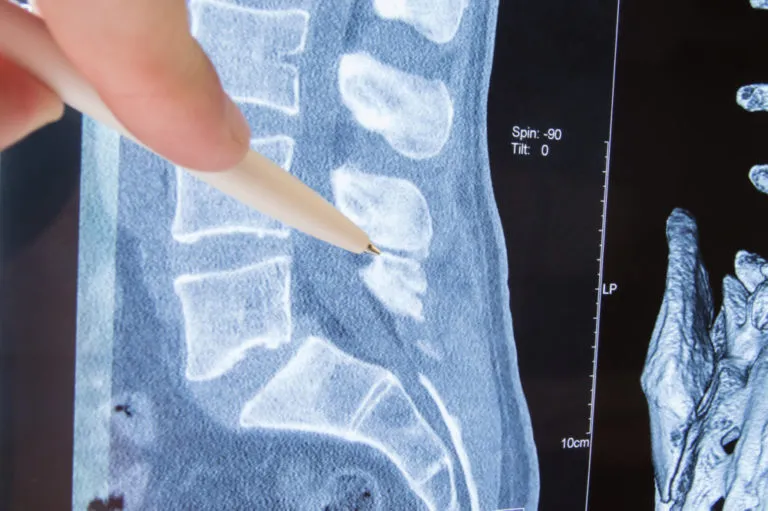



Does Spinal Stenosis Go Away? | Yashar Neurosurgery





What is spinal stenosis? What can patients expect with this diagnosis? Are there treatment options? And, most importantly…does spinal stenosis go away? Living with a spine injury can cause complications to even the simplest daily tasks. If you’re dealing with undiagnosed symptoms, and you’re looking for a [spinal stenosis specialist in Los Angeles](https://dryashar.com/spine/cervical-lumbar-spinal-stenosis/), our professionals at Yashar Neurosurgery can provide some answers for you. Below, we’ll review the symptoms and treatment options of spinal stenosis, helping you to understand what to expect if you believe you are living with this condition. What Is Spinal Stenosis? In its official terms, spinal stenosis is defined as the way a body channel narrows more than it’s supposed to. This means that the spinal nerves or spinal cord can get squeezed tight within these bone channels, causing a lot of pain and sensitivity throughout different parts of the back. It can be a congenital condition, or it can develop over time. In most cases, it is a degenerative condition that develops over time within the spine. As you age, you may start to feel the effects of spinal stenosis more and more. What Are the Most Common Symptoms of Spinal Stenosis? Some patients compare spinal stenosis pain to the sciatica pain experienced in the gluteal region. These symptoms are described as: - Pain in the spine that comes and goes - Pain while walking or doing physical activities - Pain while holding the head up - Pain relief when sitting or lying down - Pain relief when bending forward Patients might also feel pain in the legs, as many nerves from the spine travel down to the back of the legs. It might hurt to walk, or to sit. There are different types of spinal stenosis that can determine the symptoms you might experience. Our spinal stenosis specialist in Los Angeles can schedule a one-on-one consultation with you to determine the type of spinal stenosis you are dealing with. What Are Some Spinal Stenosis Treatments? Can Spinal Stenosis Go Away? Thankfully, spinal stenosis can go away with proper treatment. There are a few different treatment options that our patients typically invest in to improve their mobility and reduce spinal pain: - Physical Therapy. This treatment involves a long-term plan to slowly strengthen your spine over time, naturally working your body to widen those narrowed bone gaps to free yourself of pain. This is not a cure, but it is a way to prevent debilitation. - Epidurals. Epidural injections are blasts of cortisone that can relieve the pain from spinal stenosis temporarily. Again, this is not a cure, but it can be used in cases of severe pain to prevent the symptoms from becoming overwhelming. - Medication Treatments. Your doctor may prescribe ibuprofen or aspirin as an anti-inflammatory measure to reduce the pain of your symptoms. However, this is not a good long-term plan, as ibuprofen can damage the kidneys over time. - Surgery. Often used as a last resort, spinal stenosis surgery is used to identify the source of the narrowed bone channels and possibly correct them. This is mostly an exploratory surgery that does not guarantee complete relief from the condition. However, it may be used to aid your personal situation. One of the most successful ways to reduce pain and symptoms from spinal stenosis is to invest in activity modification. Changing the way you move, exercise, sit, and sleep can have drastic results on the pressures placed upon your spine. You may need to learn how to cope with your narrowed bone channels, only moving your body in ways that will prevent a flare-up of pain. Get A Spinal Stenosis Consultation ASAP! When it comes to spine injuries, it’s dangerous to wait without seeing a doctor. Our spinal stenosis specialist in Los Angeles can schedule a consultation with you to get your pain assessed right away. Yashar Neurosurgery specializes in spinal injuries and pain, and we can provide a customized treatment plan to fit your needs. For more information, [contact us online](https://dryashar.com/contact-us/) or give us a call at (424) 361-0923. Don’t wait until it’s too late!





Get in touch today
Please complete and submit the form below and a member of our staff will contact you shortly.


